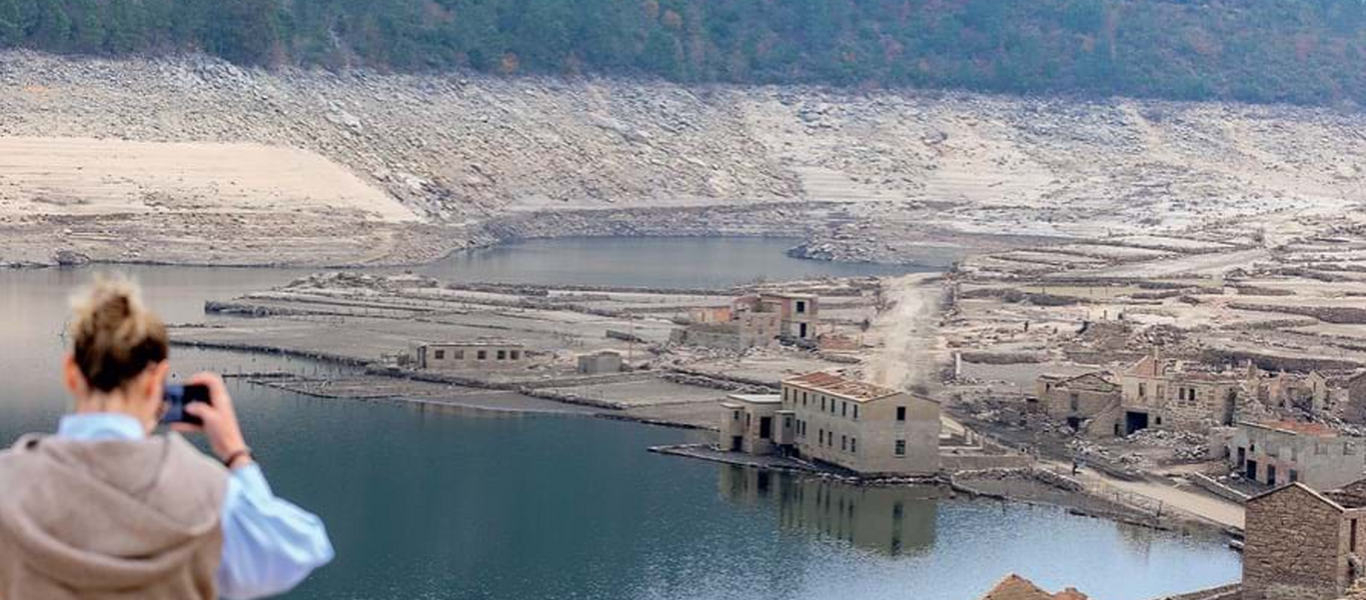Why is Portugal heating up so fast ? (in Jornal de Negócios)

Why is Portugal heating up so fast ? (in Jornal de Negócios)
The latest months have been full of reports attesting to the already present effects of climate change.
At the national level, the latest State of the Environment Report shows that Portugal is an increasingly hot and dry country. The year 2020 was the 49th hottest in the last 90 years and the country suffers from increasing water scarcity, as it was evident this winter.
The latest months have been full of reports attesting to the already present effects of climate change. At the national level, the latest State of the Environment Report shows that Portugal is an increasingly hot and dry country. The year 2020 was the 49th hottest in the last 90 years and the country suffers from increasing water scarcity, as it was evident this winter.
At the international level, the Intergovernmental Panel on Climate Change (IPCC) concluded two global analyses in 2022, one in February and another in April. The IPCC reports that in the Mediterranean region, where Portugal is located, the average temperature has already reached the 1.5° ceiling foreseen in the Paris Agreement. And for this region, climate models project consistent warming at rates 20% above global averages, reduced rainfall by 12% and rising sea levels.
Furthermore, environmental repercussions are not the only ones. The European Central Bank has also warned that the countries of Southern Europe are very exposed to climate change - with Portugal being the second Eurozone country whose economy is most exposed, which could lead to a cascade of economic consequences.
Faced with this, Portugal is in a vulnerable situation "The Mediterranean area is considered a hotspot for climate change". In terms of warming, we have already reached 1.5°, while in global terms we are at 1.2° in relation to preindustrial times, which confirms 20% faster warming", says Pedro Matos Soares, principal researcher at the Dom Luiz Institute, in the Faculty of Science of the University of Lisbon. The reasons why this happens are under study, however, "the first indications point to an intensification of the descending movement in the atmosphere, which causes a greater warming in the Mediterranean".
"Another reason is that Mediterranean is also warming faster than the oceans, because it is a more confined sea and has had large temperature anomalies on the surface. Thirdly, there are also studies that indicate that in winter, due to this warming, there is a smaller contrast between temperature of the sea and those land areas bordering Mediterranean. These three mechanisms are pointed out as being the main reason why the Mediterranean is warming up faster", he explains.
Portugal will then experience more heat, more dry spells, less water availability, more pressure on forests, more fires and more extreme events. "The big concern will be extremes of heat and loss of combined precipitation. Heat waves, in Portugal, have very harmful repercussions for public health, for the prevalence of cardiorespiratory and cardiovascular diseases, because we have a very aged population which is extremely vulnerable to these extremes," says Pedro Soares, who also points out that more heat also means more evaporation, further reduce water availability in dams and on the ground, for public supply, agriculture, forests, etc.
"We are talking about extremely strong impacts. Rainfall losses in southern Portugal could reach -40% by the end of the century, compared to the 1970-2000 climatology," he stresses. "This is not an environmental problem, it is an economic problem."
Going forward to mitigate climate change requires an integrated response involving the whole of society, from government to business and citizens.
For the first time, IPCC identified in its third report, 60 necessary changes in people's lifestyles, such as giving priority to car-free mobility or opting for electric mobility and public transport, reducing air travel, controlling energy use and switching to renewables, avoiding waste and focusing on recycled products.
Regarding food, IPCC suggests even adopting a Mediterranean diet or similar, as it is based on local products, little animal protein and lots of vegetables and legumes. IPCC says that this move could cut 40% to 70% of CO2 emissions by 2050.
Towards national data by 2023
In order to have more concrete data at a national level, a project called National Roadmap for Adaptation 2100 is underway, which includes entities such as the Portuguese Environment Agency, the Faculty of Science of the University of Lisbon, the Directorate General of Territory and the Bank of Portugal. Pedro Matos Soares is also the project's scientific coordinator and stresses that "the aim is to assess the impacts of climate change in Portugal throughout the 21st century, i.e. to look at all the changes that are taking place and understand the impacts on highly vulnerable sectors. It refers to forest fires, coastal areas and water resources".
This project, which is expected to produce its first results in 2023, will also allow "to understand the economic costs of these impacts and move forward with adaptation measures quantifying costs and benefits of these measures". "This is very important," the researcher highlights, as it will allow "outlining an adaptation plan at national level, but fixing and quantifying the costs."
An integrated change
Moving from theory to practice, the change has to be transversal and integrated.
Pedro Barata, partner at Get2C, begins by stating that "there are two major areas of action in climate change". "One is adaptation and the other is mitigation, and they are radically different in the sense that all adaptation is local and all mitigation is global.
While at the macro level measures are taken to reduce emissions, it is at the local level that adaptations have to be done. "Adaptation depends on what it is that we are wanting to adapt. If we are in the centre of Lisbon, adaptation has to do with the type of impact felt in this area, such as sea level rise that may have impacts on downtown structures. In practice, a lot of the adaptation policy can be done at the municipality level", adds Pedro Barata.
Investing on renewable energies, reviewing mobility concepts and cities functioning, changing people's life style, fostering forestry development are key ideas.
In Portugal's case, if heating is producing adverse effects, on the other hand, sun will also be one of the greatest resources from which the country should take advantage, Pedro Barata points out. "Portugal has the highest annual solarization rate in Europe, if not the highest. And if one looks at the percentage of solar renewable energy in Germany, for example, it has much more solar than Portugal.
Even compared to Spain or Greece, we have less solar. We have a comparative advantage by electrifying our consumption, by increasing the penetration of renewables, therefore making this energy transition."
Pedro Matos Soares also argues that Portugal should invest in solar energy. However, the researcher recalls that criteria are needed, because covering vast fields with panels can endanger these ecosystems. "I've been saying for many years that solar should be developed in urban areas. For example, instead of destroying forest to put up solar parks, we should make a serious investment in intelligent production and distribution of local electricity. Why? Because if we think about the amount of rooftops in the national building stock, it is a huge area. If local energy production were intensified on those infrastructures, we would have a huge area for solar production instead of building solar parks in areas with no criteria", Pedro Matos Soares concluded.
Source:
Jornal de Negócios
(Sónia Santos Dias)
20/04/2022"
